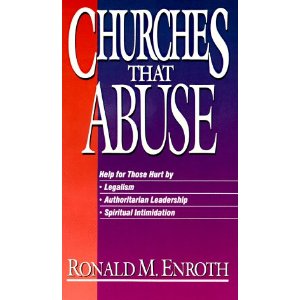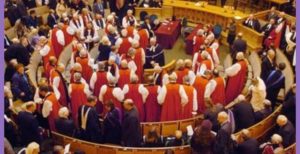 The post that I wrote with great speed last Sunday on the Gilo affair appeared at the same time as comments in the church press as well as the national press. I have, naturally, studied them with some attention but there are still things that do not make sense. Let me summarise what I think Gilo was saying in the summer of 2016 in his open letter to the House of Bishops and which was reproduced in this blog.
The post that I wrote with great speed last Sunday on the Gilo affair appeared at the same time as comments in the church press as well as the national press. I have, naturally, studied them with some attention but there are still things that do not make sense. Let me summarise what I think Gilo was saying in the summer of 2016 in his open letter to the House of Bishops and which was reproduced in this blog.
At the time that Gilo wrote his open letter to bishops he had already received a financial settlement from the Ecclesiastical Insurance Group (EIG). The sum of money that he received was not large and, arguably, could be said not to be adequate to compensate him for the suffering and grief that the abuse caused him. Nevertheless, at no point has Gilo been appearing to complain about the level of his financial compensation. His complaint to the church and to the bishops of the Church of England was the way that the entire compensation process had operated. Although EIG has claimed that there was a misunderstanding over what they advised the bishops to do in dealing with Gilo, he at any rate seems at that point to have encountered obstruction and what he felt to be a silencing process. It was this failure to communicate and an absence of care that was at the heart of Gilo’s concern and this was articulated in his letter to the bishops.
The story as it has been reported in today’s Church Times and the secular press still seems to imply that the EIG and its ability to pay compensation is the key player in the reconciliation process. This does not seem to be the narrative that Gilo was offering us. He was pointing to the complete failure of the church in responding to abused victims like himself when they try to be heard. Gilo needed a great deal of perseverance in achieving the result that he has achieved. But we are left with the feeling that most of the bishops still do not ‘get it’. At best abuse survivors are perceived to be a nuisance; at worst they are treated as the enemy to be defeated because they appear to be a threat to the wider institution. Although Gilo has received for the first time a proper hearing for his complaint against the church, hardly anyone else seems to have really picked up on the real message. His primary concern was for better pastoral care and understanding by the church for survivors like himself.
When a clergyman or any church official commits an act of abuse against an individual, there needs to be a proper response. First there will be a process of enquiry to see that the perpetrator, if guilty, is dealt with through due process. Also, the context of the abuse needs to be looked at to see if other failings on the part of church leadership can be identified. Secondly the resources of pastoral care need to be offered to the victim without delay. Such pastoral care may be extremely costly but the church must recognise that lives have been damaged, if not ruined, through the failings of church leaders. Thirdly, there should be recognition that financial compensation may be appropriate. The experience of hospitals has suggested that levels of compensation do not need always to be high. What damaged patients apparently wish to receive above anything else is an explanation, proper communication and a heart-felt apology. The church could certainly learn from the NHS in the way that compensation claims are handled by our Health Service. Gilo has had to fight for quite a long time to receive full recognition for what he has been through. It is the delay in receiving that recognition together with the fact that the insurance company appeared to be obstructing the process that has been at the heart of his complaint. My question to the church is why they now seem to be addressing Gino’s abuse as though it was just a matter of finding the right level of financial compensation. No, Gilo wanted to be heard and to shift the attitudes within the institution that aggravated the original act of abuse. Part of this has happened and, no doubt, Gilo is pleased that he has been at the centre of what may be a revolutionary shift on the part of church leaders to situations of this kind.
My final question to the church is perhaps not one that has been so far raised but is at the heart of the concerns of this blog. Why does the church appear to be so inept at understanding power issues within its structure? Why is the church so bad at identifying bullying and other forms of coercive behaviour? As the editor of this blog I hear about many stories about power abuse in churches and these take many forms. Of course, sexual abuse is one particularly acute form of power abuse, when a victim becomes objectified and used by a powerful perpetrator. But power abuse comes in many guises. I long for the day when these can be easily and readily identified before they become institutionally entrenched. It should be possible for a clergyman to say to his bishop that his behaviour is unacceptable because he is using his authority to bully and intimidate. The hierarchical system does not of course allow this to happen. Clergy do not speak like this to their bishops. Curates seldom answer back to their Vicars even though they are often subject to unnecessary humiliations.
What is it that needs to be understood? What has to be shown clearly is that every person alive is tempted from time to time in misuse whatever power is available to them. We would suggest that normally power abuse happens to compensate for some deep-seated inadequacy. Many people carry damage from a childhood where they endured bullying and put-downs. The wounds from that treatment can result in a constant need to be top dog in every situation. Now that we are seeing the almost daily immature examples of power abuse by an American president, it may help us to recognise this kind of behaviour in our churches. The church with its discourse of self-knowledge and repentance should be a place which is quick to identify such abuse. Sadly, as the discussion around Gilo this past week has shown, most church leaders simply do not yet understand the abuse and misuse of power within the institution where they operate.
My two suggestions to the Church when seeking to respond to the Gilo affair are as follows. First think carefully about the kind of environment that you want a survivor of clerical abuse to encounter. It is an accepting, caring and understanding safe-place that these survivors want rather than large sums of money. Secondly, I ask that leaders begin to study and understand far better how power works in an institution like the church. It is power and its misuse that creates the sex abuse, the bullying and a great deal of unhappiness in the institution that they serve. To grasp a new understanding would be a fine and godly achievement for the future.








